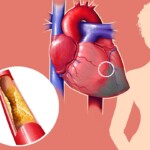Emotions not only shape our daily experiences but also play a crucial role in our health. In the realm of biodecoding, emotions are considered essential adaptive mechanisms that respond to environmental stimuli, often unconsciously. This article will explore how our emotions affect our physical and mental health, delving into the link between health and emotions.
The Relationship Between Biodecoding and Emotions
The human body is designed to respond to emotions with a series of physical changes that are vital for our survival and well-being.
These reactions range from an increase in heart rate to shorter breaths, clear signs of biological adaptation to situations perceived as threats or challenges. These mechanisms, apart from being temporary responses, have profound long-term implications for our overall health.
When we experience intense emotions such as fear or joy, our body activates the sympathetic nervous system, preparing us for action, what we commonly know as the “fight or flight” response. For example, in the face of fear, our muscles tense, our senses sharpen and our heart pumps faster, all designed to protect us from imminent danger.
However, these responses not only occur in dangerous situations but also in everyday interactions that can generate stress, like a disagreements at work or family issues. If these emotions are not properly managed, the constant state of alert can lead to chronic health conditions such as hypertension and anxiety.
Emotional Resilience: Keys to a Long and Healthy Life
On the other hand, positive emotions, such as joy and gratitude, activate the parasympathetic nervous system, which helps the body relax and recover after stress activation. This “rest and digest” not only calms the heart and lowers blood pressure but also strengthens the immune system. Moreover, regularly feeling positive emotions can improve our resilience to stress and increase our longevity.
The deep connection between health and emotions reflects how our emotional responses to daily events can shape our physical and mental well-being over the long term. Therefore, learning to manage our emotions, recognizing their triggers and finding healthy ways to express them is crucial for maintaining good health.
This link between how we feel and how our body reacts underscores the importance of cultivating a rich and balanced emotional life. Understanding and addressing our emotions not only improves our quality of life but also prevents a range of health issues related to chronic stress. Therefore, fostering better emotional intelligence is essential for living a fulfilling and healthy life.
Basic Emotions and Their Role in Health
Joy
Joy is a vibrant emotion that drives us to be more open and compassionate. It motivates us to explore, plan and enjoy life, exerting a tremendously positive effect on our mental and physical health.
Fear
Fear is a natural response to the anticipation of danger. Although often perceived negatively, its primary function is to protect us by preparing the body to react to potential threats.
Disgust
Disgust helps us avoid elements that could be harmful to our health. This emotion has a protective function, steering us away from potential dangers that could cause diseases or infections.
Anger
Anger prompts us to act and defend our personal interests. However, when not managed properly, it can have detrimental effects on our cardiovascular and mental health.
Sadness
Sadness is an emotion that, although associated with negative feelings, has the power to lead us towards a deeper reintegration and understanding of our own lives, facilitating an emotional healing process.
Hidden and Social Emotions: The Cost of Emotional Repression
Hidden emotions represent those feelings we suppress because they are not considered socially acceptable. These emotions include resentment, envy, or even extreme fear, which we choose to hide to avoid social judgment or interpersonal conflicts. However, the act of repressing these emotions carries a high price for our health.
When these emotions are not expressed, they do not disappear; rather, they accumulate in our unconscious. This build-up can create considerable internal pressure. Over time, if faced with similar situations that evoke the same emotion, this pressure can manifest physically. For example, repressed anxiety might translate into chronic headaches or digestive issues, while unexpressed anger could increase the risk of hypertension or heart problems.
Moreover, this emotional repression can lead to a constant state of alert in the body, known as chronic stress. This state negatively affects the immune system, making it more susceptible to various diseases and conditions. Therefore, it is crucial to recognize and manage these hidden emotions properly to maintain not only our mental and physical health.
Social Emotions: The Mask We Wear
On the other hand, social emotions are those we express openly and are generally accepted by society. They include happiness in social events, gratitude in common situations, or surprise at unexpected moments. These are the emotions we display at work, family gatherings, or during everyday activities, often acting as a mask that hides our true feelings.
While expressing social emotions can help maintain harmony in our daily interactions, they often do not reflect our genuine emotional state. This discrepancy between what we feel internally and what we show to the world can create internal dissonance, affecting our authenticity and emotional well-being.
It’s vital to understand that although these social emotions are necessary for harmonious coexistence, they should not be used to constantly suppress our true emotions. Instead, we should seek a balance that allows us to be honest with ourselves and others, thereby fostering deeper and healthier relationships.
The Importance of Emotional Awareness
It’s crucial to develop greater awareness of our emotions, both visible and hidden. Understanding and accepting our true emotions can lead us to a state of greater internal coherence and tranquility, essential elements for optimal health. Biodecoding teaches that by freeing ourselves from repressed emotions, we can achieve deep and lasting well-being.
This holistic approach demonstrates that emotional management is not only vital for mental health but also for our physical health, highlighting the profound link between how we feel and how we heal. Recognizing and managing our emotions is essential for fostering a healthy and fulfilling life.
Effective emotional management and resilience development are essential for maintaining good health. By understanding and applying principles of biodecoding, we can enhance our quality of life and protect against health issues related to chronic stress.
The cover image has been provided courtesy of Depositphotos.com
Transform your emotional and spiritual life with a personalized tool
Discover the power of Biodecoding combined with Kabbalah. Through your Personal Kabbalistic Tree, designed based on your name and date of birth, you’ll receive a practical guide to work on your emotions and achieve holistic well-being.





